Hummingbirds are beautiful birds to behold. They possess unique behaviors that readily distinguish them from other birds. For example, hummingbird wings beat more than ten times as fast as other birds like pigeons and starlings. With hummingbirds being so active, one important question often asked about hummingbirds is, “do hummingbirds sleep?”
But before we answer this question, let’s look at some pleasant facts about hummingbirds. There are over 300 species of hummingbirds alive today, which shows the incredible diversity of hummingbirds across Earth. Some are incredibly small, while others are surprisingly large.
With that said let’s dive into the main topic.
Do Hummingbirds Sleep?
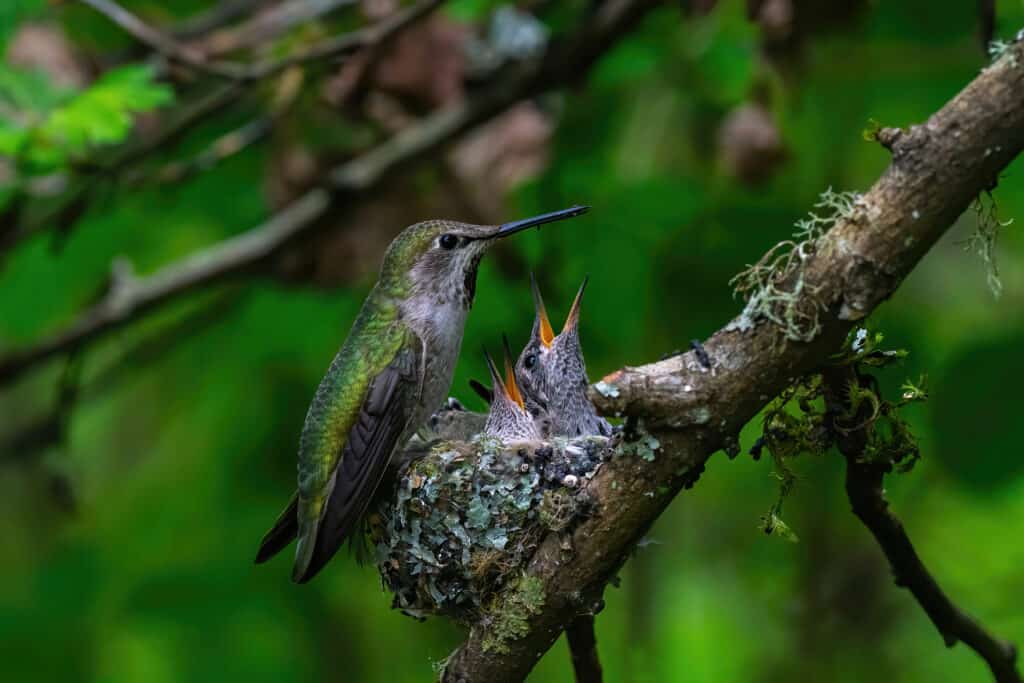
Female hummingbird feeding two babies in the nest. New mothers don’t get much sleep, even hummingbird mamas.
©iStock.com/Sen Yang
Yes, hummingbirds sleep like other birds. All birds need some form of sleep to survive and recover from the stress of the day’s activities. Since hummingbirds are active birds who aren’t confined to a particular place and are always moving, sleep is vital for them to replenish their energy.
Many people often wonder when hummingbirds actually sleep because they are always seen moving throughout the day, and many have never seen them sleep. So there is a rumor that these creatures never sleep. The exciting thing is that they don’t sleep in a common way known to many. Hummingbirds have a different way of sleeping and resting, which is a form of hibernation known as Torpor.
Where Do Hummingbirds Sleep?
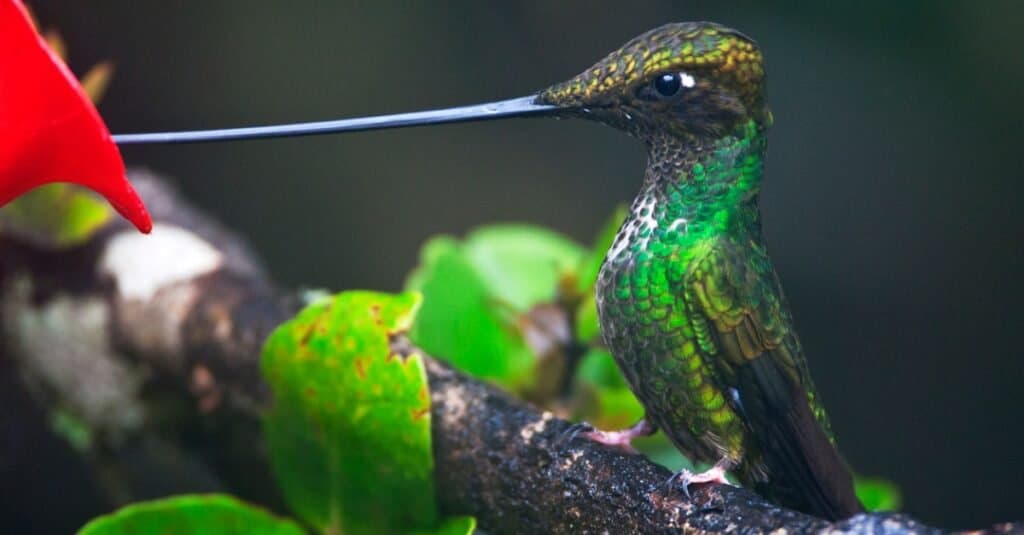
Hummingbirds sleep on tree branches in an upside down position.
©iStock.com/AGAMI stock
Where do hummingbirds sleep? Hummingbirds, most times, sleep on tree branches in upside down positions. They are always intentional about choosing trees that can provide them with a good and comfortable shelter since they are susceptible to weather conditions.
Hummingbirds prefer trees with large leaves which will enclose them and also cover them from predators while at sleep. Generally, birds are known to sleep in nests, but it is different in the case of hummingbirds. They don’t sleep in nests except on special occasions.
Female hummingbirds become an exception during their breeding season. They tend to sleep in nests for the incubation of their eggs and to keep their young ones warm at their early stage when they have no feathers yet. But for male hummingbirds, there is never a period when they have to sleep in nests.
Hummingbirds are never attracted to birdhouses because they naturally dislike sleeping in small places. So birdhouses are not an option for hummingbirds due to their size. So don’t set up a birdhouse as you do for other birds, hoping that hummingbirds will come by.
How Do Hummingbirds Sleep?
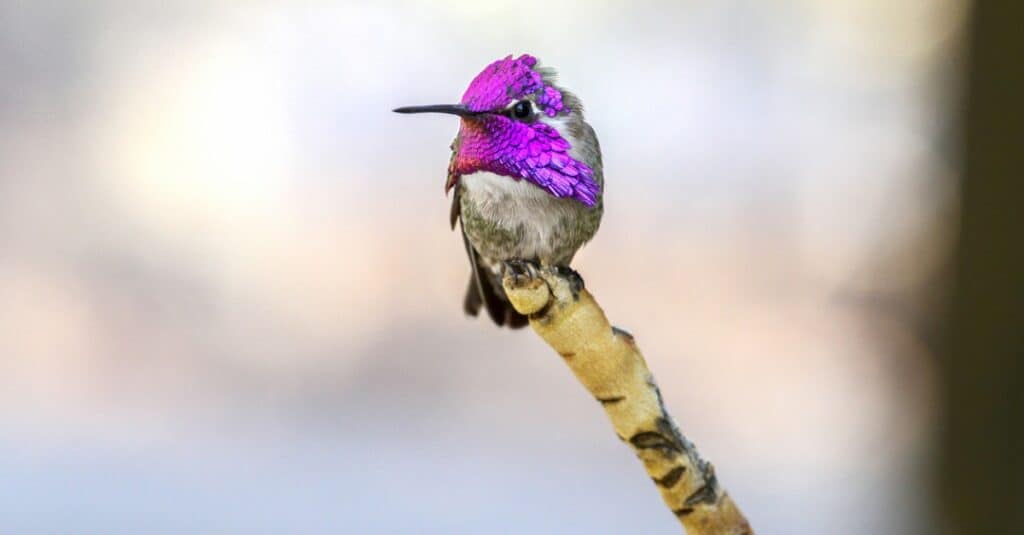
Female hummingbirds sleep in nest during breeding season to incubate their eggs.
©iStock.com/Monica Lara
It is fascinating watching hummingbirds sleep. They often sleep in such a way that you might think they are dead, especially when you see them hanging upside down on a branch.
Hummingbirds sleep at night to regulate their internal system and conserve energy for the following day’s activities.
Hummingbird Torpor
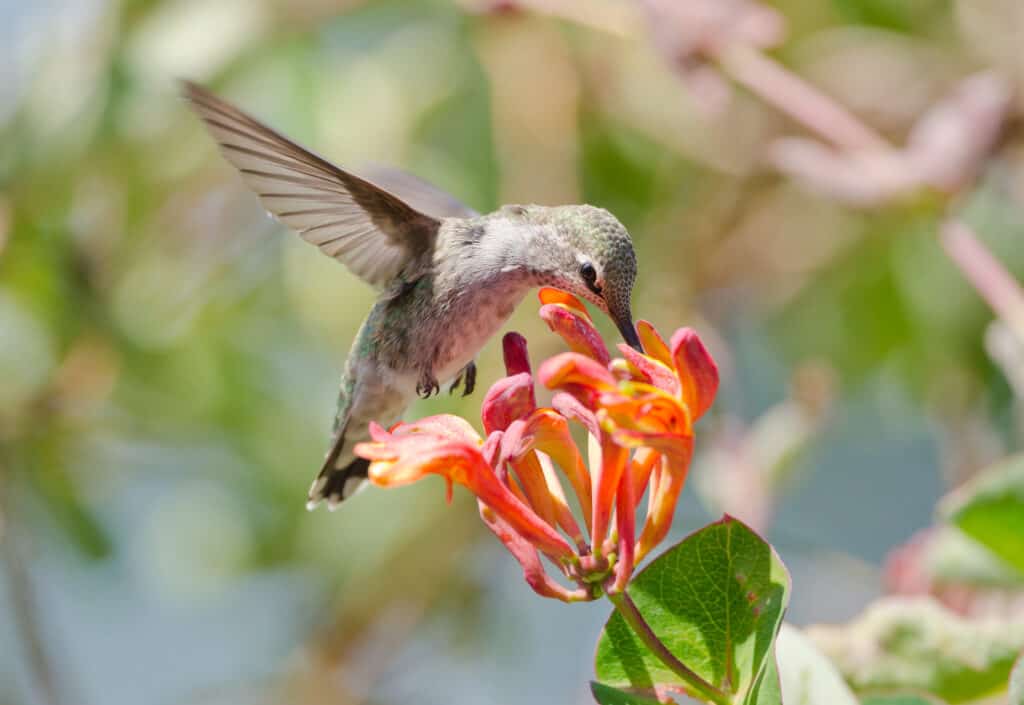
Hummingbirds can sleep for up to 18 hours!
©Birdiegal/Shutterstock.com
Do hummingbirds sleep like other birds? Actually no – as earlier said, torpor is a form of hibernation which comes in the form of deep sleep. This helps them to rest and recover energy lost from the day’s activities. Even if you see a hummingbird that has hibernated, you will hardly know – they are sometimes seen hanging on a branch, usually upside down.
This activity helps to reduce their metabolism rate, heartbeat rate, and respiration rate. They do this at night because the temperature must have dropped at night. If you observe hummingbirds closely during this hibernation period, they might seem dead because their heartbeat rate will drop to a very low level.
Hummingbirds prepare for sleep every night. Some of them wander randomly until they get a nice spot to rest, but most times, they prepare specifically for the night because they are always aware when night approaches. Hummingbirds are temperature-sensitive creatures; hence they find it more pleasant to sleep at night than during the hot day.
How Long Do Hummingbirds Sleep?
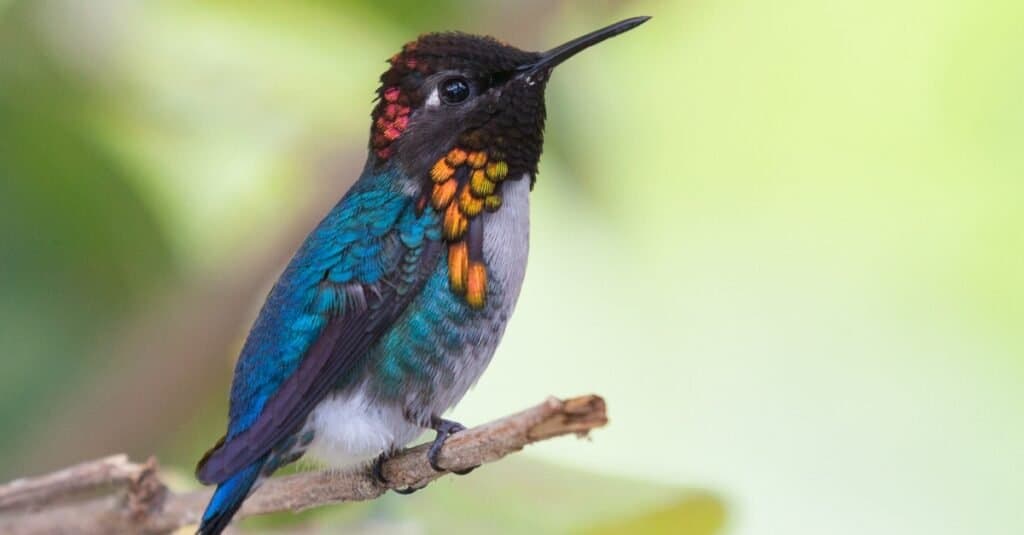
Hummingbirds sleep on average of 12 hours per day from dusk to dawn.
©iStock.com/epantha
Do hummingbirds sleep for long periods? Talking about their sleep duration, hummingbirds can go into torpor for as long as 8-16 hours, depending on the current season. But it can be said they sleep for about 12 hours on average. It usually begins from dusk to dawn.
Some factors also influence how long hummingbirds sleep, ranging from weather conditions, predators, the size and type of the bird. Usually, it takes hummingbirds about an hour to recover from their hibernation state.
Hummingbirds only sleep once a day because it takes them a lot to recover once they hibernate. So they only do it once daily. This is the reason they don’t take naps during the day. Hummingbirds can’t afford to sleep at any time because their torpor increases their chance of being attacked by predators. So you can’t find hummingbirds sleeping just at any time.
Do Hummingbirds Sleep During the Day?
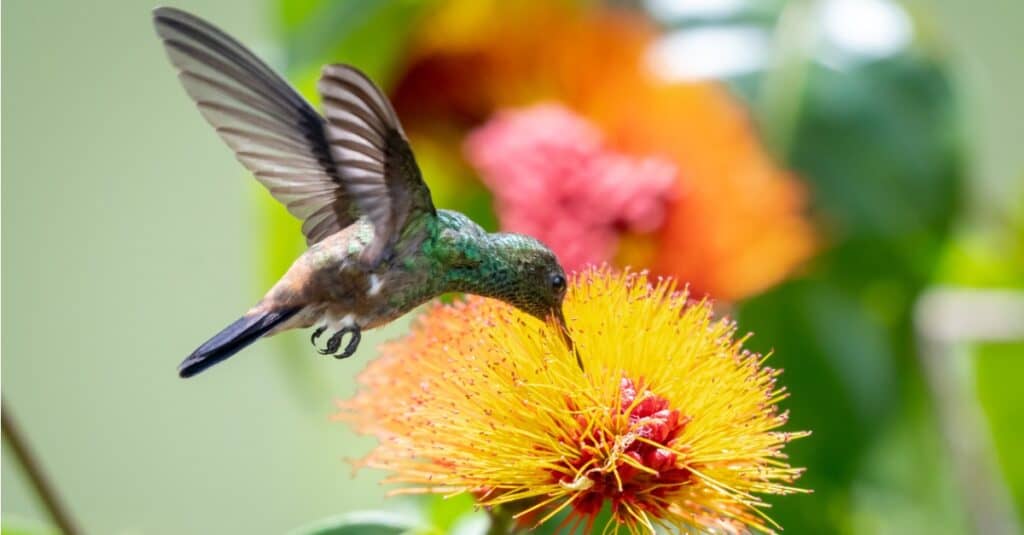
Hummingbirds generally eat nectar from flowers that are a shade of red, orange, or pink.
©iStock.com/Chelsea Sampson
From all that has been said so far, it is clear that hummingbirds don’t sleep in the day due to many reasons that have been talked about. However, in some situations, you could find a hummingbird sleeping during the day, and this is abnormal.
Hummingbirds are always active throughout the day, so when you see a hummingbird sleeping in the day, something is definitely wrong. Some factors could contribute to this: deplorable weather conditions and food scarcity. They are the major reasons a hummingbird could be seen sleeping during the day. In such a situation, the hummingbird might have to go into an emergency hibernation to conserve its energy. Asides from these reasons, hummingbirds can’t be found sleeping during the day.
Bonus: Do All Hummingbirds Migrate?

Most hummingbirds migrate even though temperatures are rising.
©Ramona Edwards/Shutterstock.com
Hummingbirds are a right of summer in North America – and many feeders are put out in the spring to welcome the feisty little cuties as they fly in from Mexico. If you have observed the trend of Canadian geese choosing to hang out in the park rather than embark on a long journey to Canada – you may wonder if hummingbirds will follow suit. As of now, the answer is no. The majority of hummingbirds will fly to Mexico or Central America like they always have. The main exception is Anna’s Hummingbird, which stays along the Pacific Coast all year long.
It is amazing to consider that a tiny bird that weighs the same as a penny can fly 500 miles across the Gulf of Mexico in less than a day! Their motivation is not hunger or cooling temperatures but decreasing daylight hours. A hummingbird’s trips to North America are vacations from the hustle of intense competition for food – there’s more than plenty during the summer months in their northern habitats! Once they arrive in the United States – they can travel up to 20 miles a day – following their favorite flowers as they bloom.
The photo featured at the top of this post is © MTKhaled mahmud/Shutterstock.com
Thank you for reading! Have some feedback for us? Contact the AZ Animals editorial team.






